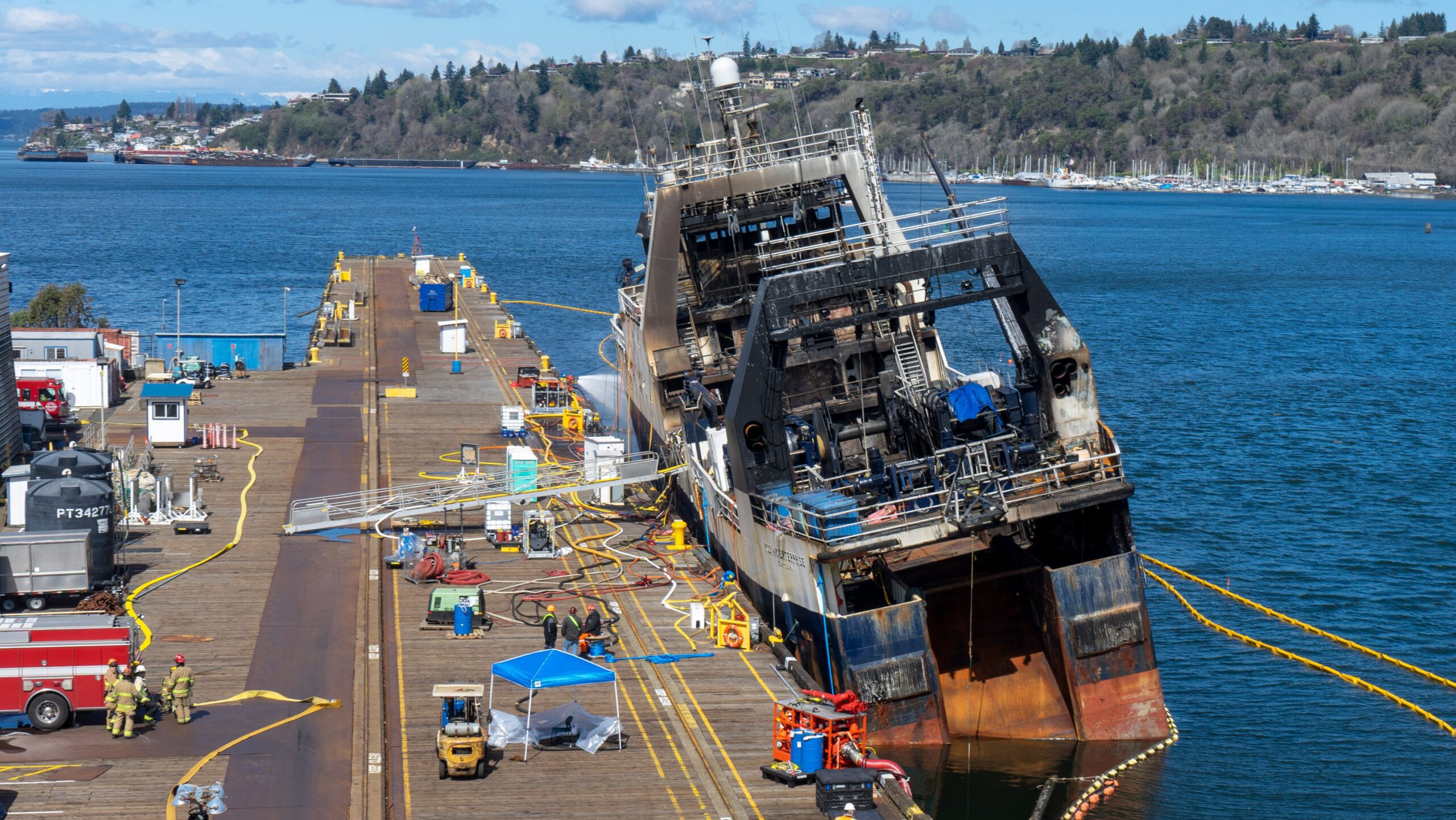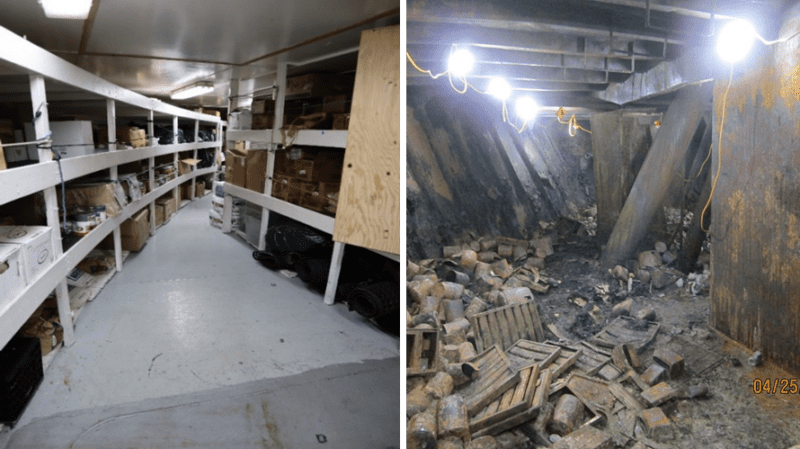Baltimore Bridge Collapse: Explosive Salvage Plan
May 8, 2024: Charges to Be Used on Bridge Section Over Dali The Key Bridge Response Unified Command plans to use small charges, i.e. explosives, to make precision cuts to...


Kodiak Enterprise pictured following a fire at the Trident Seafoods dock in Tacoma, Washington. U.S. Coast Guard Photo
A six-day inferno aboard the Kodiak Enterprise, which broke out in the dry stores room, was made worse due inadquate fire notifications that led to a delay in alerting crew members of the first, the NTSB said Thursday.
The commercial fishing vessel was docked at the Trident Seafoods facility in Tacoma, Washington, when the fire erupted on April 8, 2023. All four crewmembers who were living onboard during the scheduled overhaul managed to escape without injury. The vessel, however, was declared a total loss, amounting to $56.6 million.
The fire was initially spotted by a deckhand from a nearby vessel, who reported the sighting to a Trident security guard. The security guard relayed the information to a Trident official, who subsequently woke the sleeping crew onboard the Kodiak Enterprise.


Despite having a fire detection and notification system in place, designed to send an alarm via text or email when set for in-port operation, the system failed to send a notification on the night of the fire. The NTSB identified the vessel’s inadequate fire detection and notification system, which was not designed to sound in crew accommodation spaces and failed to wirelessly alert shoreside contacts, as a factor that contributed to the risk to the onboard crewmembers and to the severity of the fire.
While the fire’s cause could not be definitively determined due to extensive damage, investigators believe that it was likely sparked by an unknown electrical source in the dry stores room.


The NTSB’s report underlined the importance of wireless monitoring and notification systems, particularly for vessels moored at the dock where crews are not on a 24-hour watch, and suggested a regular testing schedule for these systems to ensure they are functioning properly and providing timely alerts to the intended recipients. The report further stressed the need for crewmembers to verify the functioning of the fire detection and notification system following any repair work that could trigger false alarms.
“Vessel wireless monitoring and notification systems with an “in-port” setting allow operators to be notified of a potential emergency when a vessel is moored at the dock and crews are not standing a 24-hour watch,” the report said. “Vessel operators should test the system on a set schedule to ensure it properly notifies the recipients of the alert. When the vessel is undergoing repair work that can cause false alarms, such as hot work, crewmembers should check the fire detection and notification system to ensure it is operating following the completion of work.”
The report also highlighted a significant oversight – that crewmembers living onboard were not listed among the system’s designated contacts for immediate notification in the event of a fire. Rather, the system was only set up to alert two shoreside contacts if a fire was detected. The report recommended that any crewmembers residing on a vessel while it is in port be included as designated contacts in the system.
Join the gCaptain Club for curated content, insider opinions, and vibrant community discussions.


Join the 106,241 members that receive our newsletter.
Have a news tip? Let us know.
Access exclusive insights, engage in vibrant discussions, and gain perspectives from our CEO.
Sign Up




Maritime and offshore news trusted by our 106,241 members delivered daily straight to your inbox.



Essential news coupled with the finest maritime content sourced from across the globe.
Sign Up